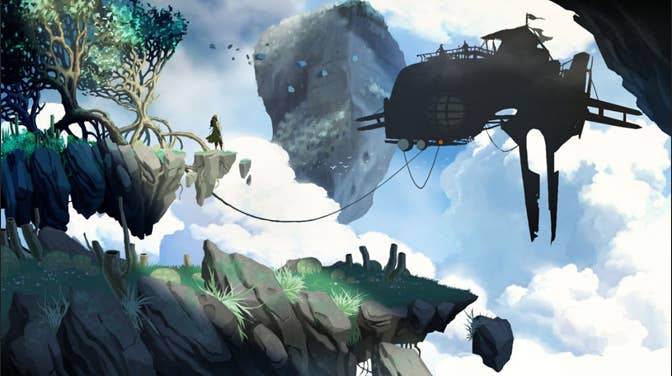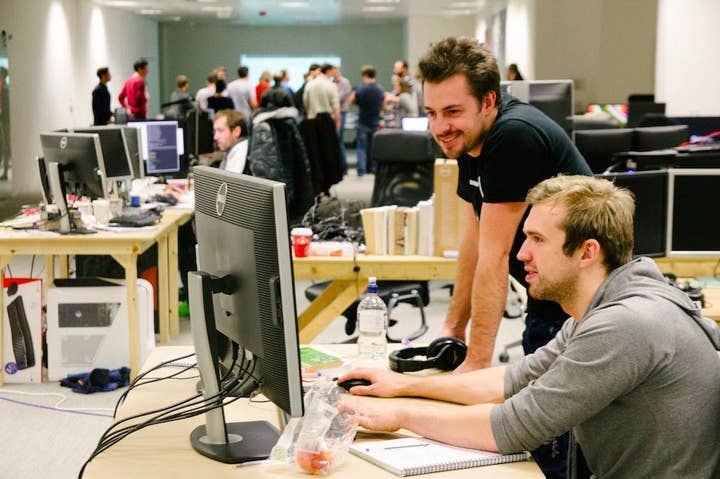Improbable scores $20m investment from Andreessen Horowitz
Partner Chris Dixon joins board at tech company
UK tech company Improbable just raised $20 million in a funding round with Andreessen Horowitz, a significant investment that will help the company's disruptive plans for simulations and online gaming gather pace.
Chris Dixon, a partner at Andreessen Horowitz and notable for his investment in Oculus VR in 2013, will join Improbable's board as part of the deal.
We asked energetic CEO Herman Narula what such a cash injection would mean for Improbable's future.
"What we want to do is genuinely expand our core technical team, the capabilities that we've talked about now are really the beginning of where we want to go," he told GamesIndustry.biz
"You can imagine what the logical conclusion of having even more depth, even more persistence, even more entities within a world with even more interesting gameplay could be.
"We want to build the Google of games, that's really our vision"
"We want to get that. We want to empower more and more developers, so to build that infrastructure is going to require even better talent and even more growth. We think we're pretty clever guys but we're reaching the edge - there are even better people we want to bring in. We want to build the Google of games, that's really our vision."
The company has only revealed two of the developers its working with so far: Surgeon Simulator creator Bossa Studios and Dean "DayZ" Hall.
"Bossa's game and Dean's game are both impressive in their own right, neither of them fully exploit what we're offering," he adds.
"It's been our principle from the very beginning to do things in stages and do things incrementally but to show something along the way. So Bossa's game is the first time you'll see physical interaction, loads of people, a world that feels so much more interactive and less cardboard than online games have been in the past.

"With Dean's game you'll start to see real depth in terms of economies, social systems, entities doing really cool stuff. Bossa's game will also begin to put that in over time."
Improbable is also working on a project internally, which Narula describes as taking things to the next level as far as the tech's capabilities are concerned.
"We're probably going to look for a partner for that because it's bigger in scope than even we'd be prepared to handle, which is really saying something."
Andreessen Horowitz's Dixon will advise Improbable in what Narula calls a 'tag team' with Marc Andreessen.
"Improbable's technology solves the parallelisation problem for an important class of problems: anything that involves 3D space, which basically means any problem where you want to build a simulated world," said Dixon.
"Developers who use Improbable can write code as if it will run on only one machine (using whatever simulation software they prefer, including popular gaming/physics engines like Unity and Unreal), without having to think about parallelisation. Improbable automatically distributes their code across hundreds or even thousands of machines, which then work together to create a seamlessly integrated, simulated world."
"For us, we live or die by the first games that get out there"
"Beyond gaming, Improbable is useful in any field that models complex systems - biology, economics, defence, urban planning, transportation, disease prevention. Think of simulations as the flip side to 'big data.'"
One of the reasons the company looked for funding, Narula says, is to avoid dependence on large game studios so Improbable can follow exciting ideas, not exciting checkbooks.
"For us, we live or die by the first games that get out there. One of the reasons we're looking for independent funding is so that we don't have to choose people based upon the initial cash benefit. My belief, and maybe I'm wrong, but it's that if you take someone like Henrique [Olifiers] and Imre [Jele] they can and should be a Supercell or a Blizzard, the only thing holding them back is building products that can have that reach. They have the creativity and genius.
"I'd rather empower people like that, especially today when those people are prepared to be so much more creative. With time I think, yes, of course the bigger juggernauts will be people we want to partner with - to be fair we're already talking to very great people within some companies - and we see that process happening, but they're also just slower moving. In the time we would have negotiated a deal with someone else Dean has already built most of the game."
For more background on Improbable watch Narula's GameHorizon talk explaining his vision for the industry:


